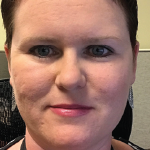Despite the innovations of new biologics and disease-modifying anti-rheumatic drugs, a large unmet need remains for patients with rheumatic autoimmune disease. Treatment remains limited for many conditions, including for conditions with a dim prognosis, such as systemic sclerosis.1 One promising treatment avenue is hematopoietic stem-cell transplantation (HSCT). Here, we provide background on HSCT for severe rheumatic autoimmune disease, examine the perspectives of three patients who sought out clinical trials and provide a research update on systemic sclerosis.
HSCT History & Current Status
In 1996, a patient with connective tissue disease and severe pulmonary hypertension underwent autologous HSCT—the first patient with rheumatic autoimmune disease reported to receive the treatment.2 Since that time, clinical research teams have performed HSCT for a number of different rheumatic autoimmune conditions, including systemic sclerosis, lupus, rheumatoid arthritis, juvenile idiopathic arthritis and, less commonly, for other conditions, such as Sjögren’s syndrome, mixed connective tissue disease, Behçet’s disease, psoriatic arthritis, ankylosing spondylitis and vasculitides.3,4
Worldwide, teams have performed over 3,000 HSCT procedures for rheumatic and nonrheumatic autoimmune disease. These have been mostly autologous HSCT, as documented through the Center for International Blood and Marrow Transplant Research and the European Group for Blood and Marrow Transplantation.3
Researchers adopted the technique of HSCT from the fields of hematology and oncology.4 HSCT aims to reset an autoreactive immune system. Current immunosuppressive and biological treatments for autoimmune rheumatological disease can successfully suppress immune response, but they are unable to target autoreactive immunologic memory. Moreover, they must be taken continuously in order to maintain immunosuppression. In contrast, HSCT therapies can potentially provide sustained, total remission of autoimmune syndromes without the need for ongoing therapy.

Dr. Georges Georges
HSCT profoundly depletes the autoreactive immunologic memory (T cells and B cells) via high-dose chemotherapy. Conditioning regimens vary. In general though, stem cells are mobilized into the bloodstream by such treatments as granulocyte colony-stimulating factor and later collected. Several weeks later, patients undergo some version of immunoablative therapy, receiving such agents as anti-thymocyte globulin and cyclophosphamide. During this time, the autoreactive immunological memory is profoundly depleted. This is followed by autologous stem cell transplant, which reconstitutes a new immune system and reestablishes immune tolerance.3
After transplant, T cells appear to be largely derived from the stem-cell graft, and T regulatory cells display a renewed repertoire of T cell receptors.3,5 Autoantibodies are also substantively reduced after HSCT treatment.5

Kathy Peel had HSCT for her lupus in July 2016.
